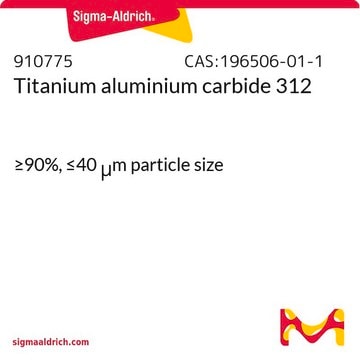695068
Hydrofluoric acid
ACS reagent, 48%
Synonym(s):
HF
About This Item
Recommended Products
grade
ACS reagent
Quality Level
vapor density
1.27 (vs air)
vapor pressure
25 mmHg ( 20 °C)
Assay
48%
form
liquid
density
1.15 g/mL at 25 °C (lit.)
anion traces
chloride (Cl-): ≤5 ppm
phosphate (PO43-): ≤1 ppm
sulfate, sulfite (as SO42-): ≤5 ppm
cation traces
As: ≤0.05 ppm
Cu: ≤0.1 ppm
Fe: ≤1 ppm
heavy metals (as Pb): ≤0.5 ppm
SMILES string
[H+].[F-]
InChI
1S/FH/h1H
InChI key
KRHYYFGTRYWZRS-UHFFFAOYSA-N
Looking for similar products? Visit Product Comparison Guide
Related Categories
General description
Application
- Cyanohydrin alkyl ethers via chiral Bronsted acid-mediated hydrocyanation of vinyl ethers with silyl cyanides.
- N, N-Dimethylaniline hydrochloride salts via Pd-catalyzed Buchwald-Hartwig amination of aryl triflates with dimethylamines.
Signal Word
Danger
Hazard Statements
Precautionary Statements
Hazard Classifications
Acute Tox. 1 Dermal - Acute Tox. 2 Inhalation - Acute Tox. 2 Oral - Eye Dam. 1 - Skin Corr. 1A
Storage Class Code
6.1A - Combustible acute toxic Cat. 1 and 2 / very toxic hazardous materials
WGK
WGK 2
Flash Point(F)
Not applicable
Flash Point(C)
Not applicable
Choose from one of the most recent versions:
Already Own This Product?
Find documentation for the products that you have recently purchased in the Document Library.
Articles
Professor Gogotsi and Dr. Shuck introduce MXenes: a promising family of two-dimensional materials with a unique combination of high conductivity, hydrophilicity, and extensive tunability.
Professor Gogotsi and Dr. Shuck introduce MXenes: a promising family of two-dimensional materials with a unique combination of high conductivity, hydrophilicity, and extensive tunability.
Professor Gogotsi and Dr. Shuck introduce MXenes: a promising family of two-dimensional materials with a unique combination of high conductivity, hydrophilicity, and extensive tunability.
Professor Gogotsi and Dr. Shuck introduce MXenes: a promising family of two-dimensional materials with a unique combination of high conductivity, hydrophilicity, and extensive tunability.
Our team of scientists has experience in all areas of research including Life Science, Material Science, Chemical Synthesis, Chromatography, Analytical and many others.
Contact Technical Service









